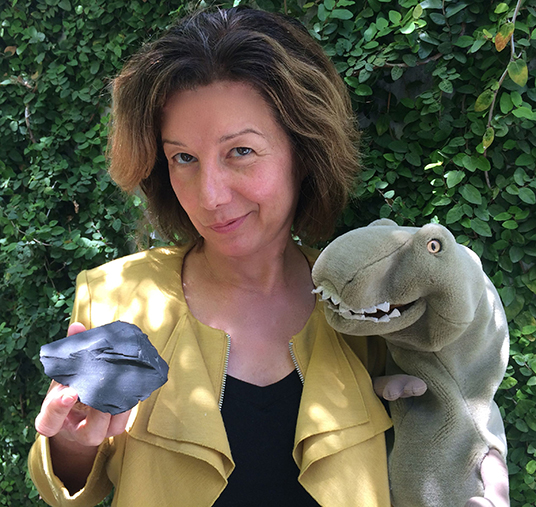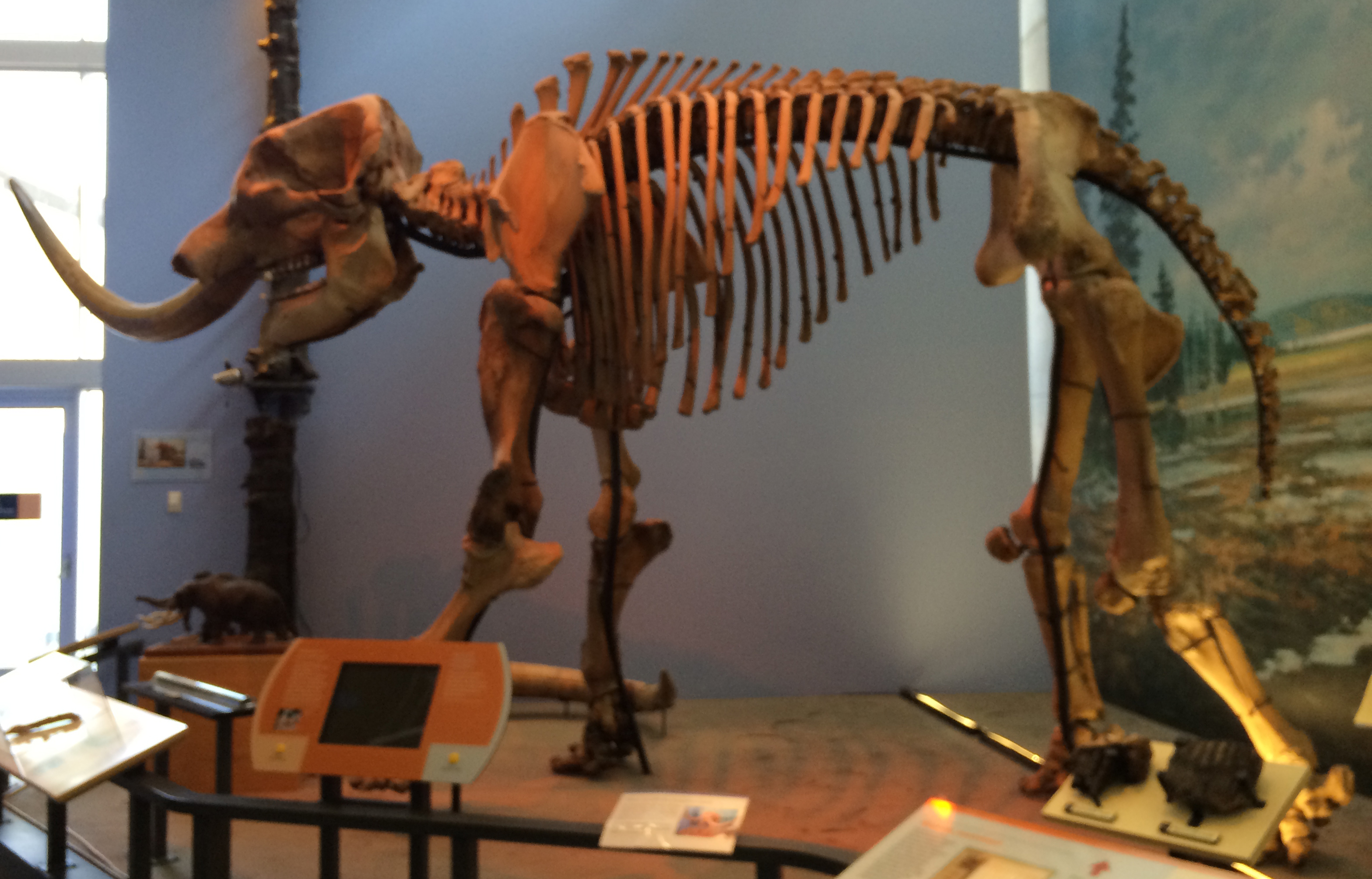Ask NASA Climate | April 29, 2014, 12:52 PDT
Zombies vs. Goldilocks: The insurrection

Most fossil fuels come from fossilized plants rather than from dinosaurs (as commonly thought). Natural gas is one type of fossil fuel that is trapped within shale formations, like this piece of shale that I have in my right hand.
You might remember a time when most people celebrated Earth Day for only a single day. Well now there are so many Earth Day events that the single day turned into a whole week (Earth Week) or the whole month of April (Earth Month). Yay, Earth! You deserve it! Here at Earth Right Now, every day is Earth Day and many of you probably feel the same way.
Over the past few weeks, these celebrations gave me the opportunity to get out and interact with the public—sitting on science panels, giving speeches, participating in social media events—on the frontline of sorts, which is the best chance for me to learn from all of you. I’m going to spend the next couple of blog posts sharing a few of the major themes.
First, I noticed how often members of the public ask scientists about climate change policy. This is hard. A scientist’s job does not include telling people what to do. Instead, a scientist helps explain how the world works. The best advice I can give anyone is to learn for yourself; get educated. Learn about the scientific method—about how science is based on making observations, collecting and understanding evidence—and then go ahead. Trust yourself. Make your decisions based upon reliable evidence. Yes, you can do this—anyone can.
Understanding the science will help you when you're faced with the other phenomenon that I observed on the frontlines this Earth Month: people’s sensitivity and prickliness around the topic of hydraulic fracturing (the scientifically accurate word for the term "fracking"). The mere mention of the science behind natural gas or shale induces hordes of flesh-eating zombies to crawl out, torches ablaze, ready for a round of flame wars. In fact, people seem so terrified by hydraulic fracturing that when I pause to cultivate a logical or thoughtful analysis, my calm demeanor is interpreted as I'm "for" or "against" gas drilling, depending on which side the listener stands.
As I’ve written before, finding the balance between alarm and apathy when dealing with climate change is a challenge. And like Goldilocks, I’m aiming for that place that feels just right: logical and calm. Yet many people are desperate for scientists to “pick a side.”

There are two practical reasons I favor the stability of Goldie over the terror of her zombie foes. The first is that our brains don’t function well when our nerves get rattled; and we need to use our intelligence more than ever right now. Second, a more objective, less wound-up mindset is an asset in the search for appropriate energy sources we can all use. I mean, let’s face it: We all use energy. That includes you, reading this blog. After all, teams of hamsters are not powering the Internet.
So if panic doesn’t help, and steadily observing the world so we can make better decisions does help, then let’s take a look at natural gas, which is a type of fossil fuel upon which we’ve been increasingly relying in this country. About a third of the energy we use today comes from hydraulically fractured shale. I had the opportunity to learn about the fossils that make our fossil fuels when I visited The Paleontological Research Institution and its Museum of the Earth in Ithaca, New York, where I held a piece of Marcellus shale in my hand.
The team of scientists at The Paleontological Research Institution knows about the strong emotions surrounding shale, but they also know how to put things into perspective. As custodians of one of the most complete mastodon skeletons ever found, they have a constant reminder of the geological time scale. As Don Duggan-Haas, director of teacher programming for the institute, explained, “Throughout human history, we’ve resolved one environmental issue only to start a whole new one.”
Before we relied so much on natural gas, we lopped the tops off of mountains to get at the coal inside, which does considerable environmental damage. Before we burned coal, humans supplied most of our energy needs by hunting whales and burning whale oil. As an oceanographer, I love the sea and the creatures in it, so I am emphatically certain that I do not want to burn any whales. No way. I’m going to go out on a limb here by saying I’m against burning whales.
But humans discovered how to use fire about 2 million years ago, which means it’s pretty unrealistic to believe that we’re going to stop anytime soon. I suggest that we face—as thoughtfully and as deliberately as possible—the reality that our behavior often has a negative impact on our environment. Acknowledging that truth will enable us to decide which strategies will limit, and even lessen, many of those negative impacts.
As always, I look forward to reading your comments.
Laura
